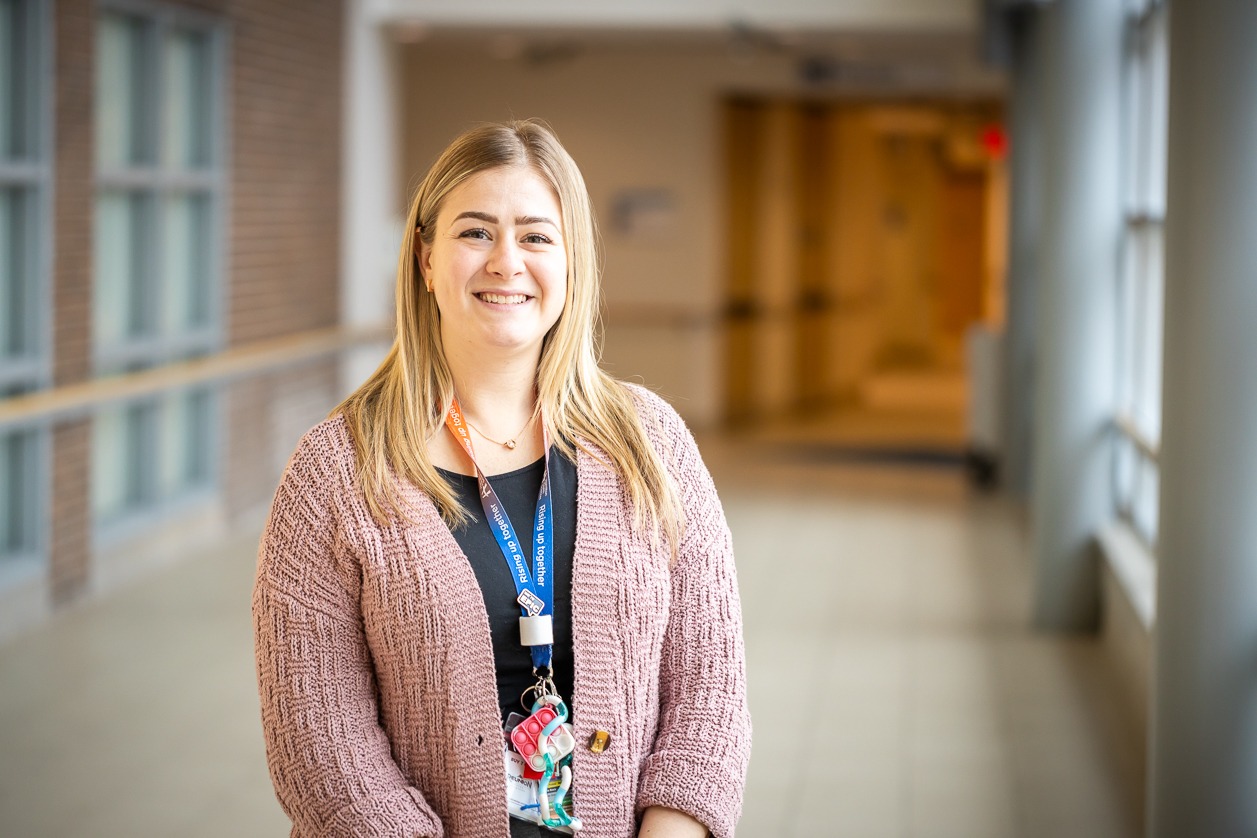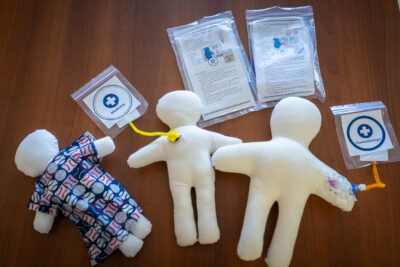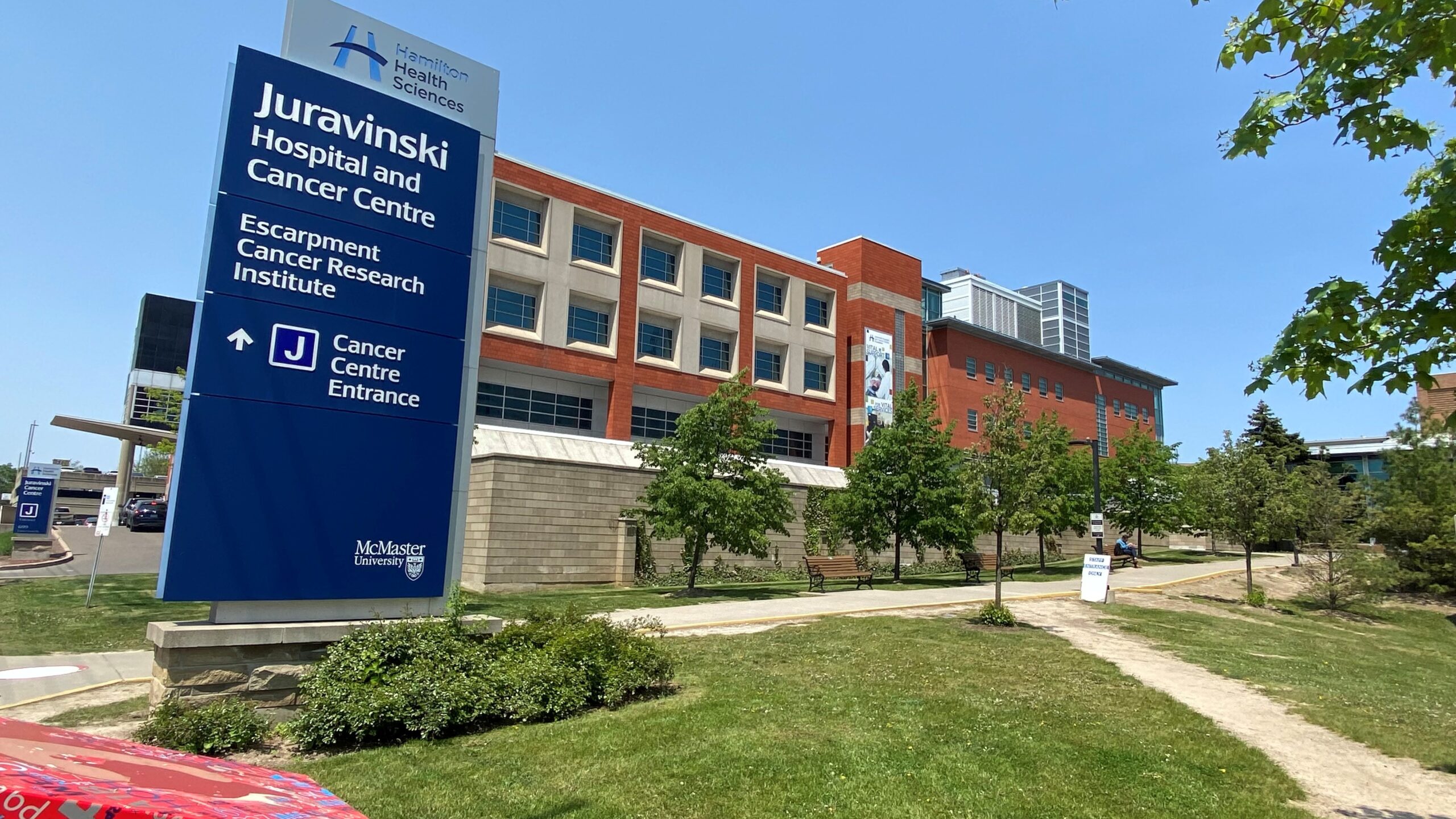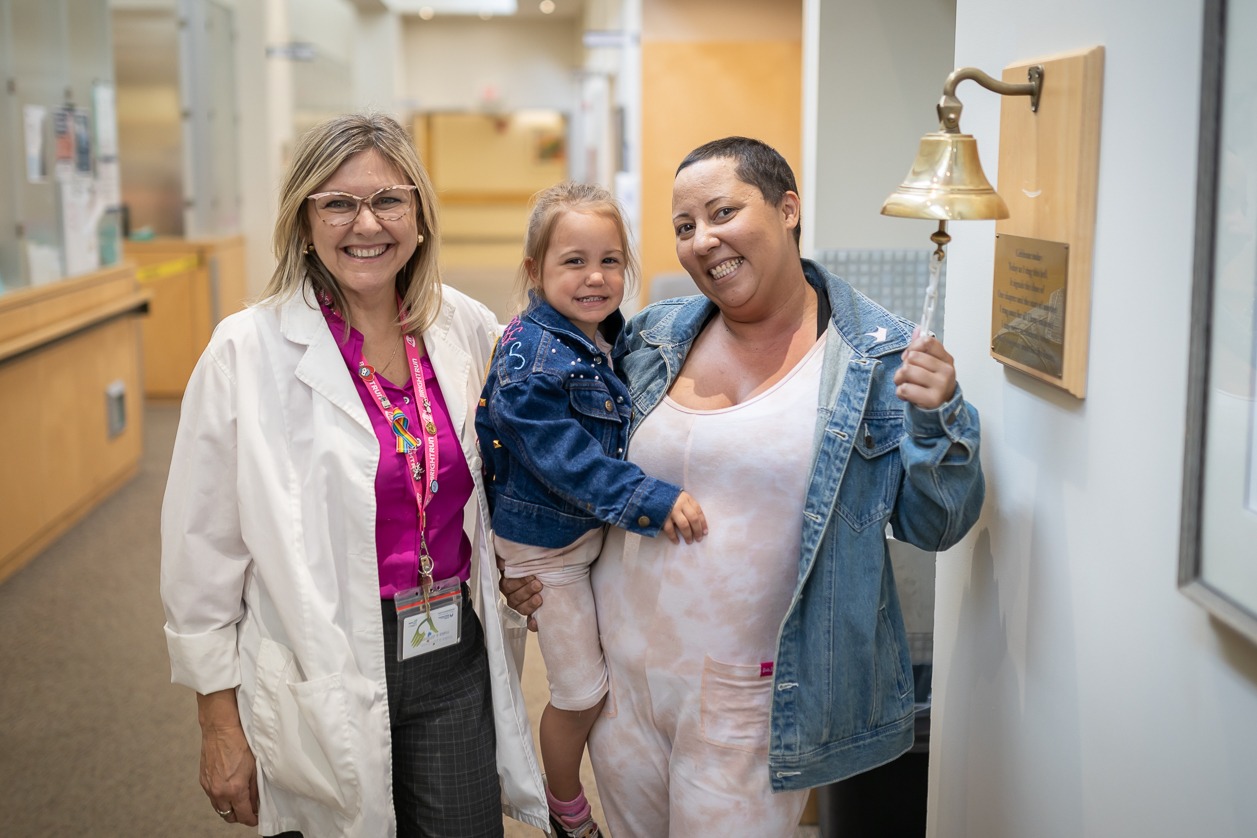
How am I going to tell my children?
JHCC’s child life specialist service program is unique, provincially
Child life specialists are typically found at children’s hospitals, where their role includes helping young patients and their families cope with the stress and uncertainty of illnesses, injuries and disabilities.
But in Bridget Veltri’s case, her focus is on adult patients and their families. Veltri works at Hamilton Health Sciences (HHS) Juravinski Hospital and Cancer Centre (JHCC), supporting adult cancer patients and their children through her work as a child life specialist. The service is an extension of the robust child life program at McMaster Children’s Hospital, also within the HHS network.
“I work with parents to find out what they’re comfortable sharing, because at the end of the day they know their children best.”
The JHCC is the only adult cancer centre in Ontario with a child life specialist service program. This unique program was recently recognized provincially at the 16th annual Quality and Innovation (QI) Awards with an honourable mention in the Innovation Award category. The QI Awards are co-sponsored by the Canadian Cancer Society and Cancer Quality Council of Ontario in partnership with Ontario Health, Cancer Care Ontario.
“The way that children understand and cope with serious illness is unique, and I’m privileged to be a strong advocate for our cancer patients and their children,” says Veltri, who has an undergraduate degree in child and youth studies and a master of science degree in child life and pediatric psychosocial care.
Child life specialist service program
JHCC cancer patients with children under the age of 18 are referred to Veltri, as an optional part of their care.
“When a parent receives a cancer diagnosis, one of their first thoughts is, ‘How am I going to tell my children?’” says Veltri. “They may also want guidance on how to explain their treatment to their children. Or if there’s a change in their prognosis, such as finding out their cancer can’t be cured, they may want advice on how to share this news with their children.”
Research-based approach
Research shows that helping children understand their parent’s diagnosis, prognosis and treatment, in an age-appropriate way, helps them to cope better and worry less, says Veltri.
“Studies show that kids worry more when information isn’t shared. Kids need space to talk openly to the most important adults in their lives in order to process their emotions. So we really promote open communication as the best way to help kids.”
With this in mind, Veltri assess each family’s needs and where they are in their illness journey, recognizing this is often a stressful and emotional time for the whole family.
Collaborating with parents is vital when sharing information with kids, adds Veltri. “I work with parents to find out what they’re comfortable sharing, because at the end of the day they know their children best.”
Supporting families
Veltri typically supports children ranging in age from toddlers up to 18. They can meet with her one-on-one, or with their parent present. Visits can happen in person at JHCC or through video conferencing.
With advancements in cancer therapies, many patients receive ongoing treatment for years in order to manage their disease. Veltri’s position can support children through all ages and stages until they reach adulthood.
Older children often prefer to meet one-on-one, says Veltri. “They may have really hard questions that they don’t want to ask in front of their parent, and it can be helpful for them to have someone they can talk to outside of family or friends.” Veltri will then help the family to build their communication strategies in a way that supports having open and healthy conversations, even about extremely hard topics.

Child life specialist Bridget Veltri uses dolls to help young children understand their parent’s cancer treatment.
For younger children, Veltri often uses medical play, where she uses dolls or stuffed animals to explain a parent’s cancer treatment. “For example, a child may be afraid to see their parent with a PICC (peripherally inserted central catheter) line,” says Veltri, who will place a PICC line on a doll or stuffed animal to help alleviate fears.
“I use the same approach to explain treatment, by attaching a chemotherapy bag to a doll. Through play-based format kids can touch, explore and ask questions.”
Veltri also uses craft projects to support families when a parent is in palliative care. Memory making and legacy work includes making scrap books, handprint art and storytelling for sharing family memories.
Will my mom or dad die?
One of the most common questions Veltri fields from kids is whether their parent will die.
“They may be terrified to ask their parent, but this question is front-of-mind for many kids and they want to be told the truth,” says Veltri, adding, “It’s often about balancing hopefulness with accurate information when answering this question, because a cancer diagnosis can come with a lot of unknowns.”
Where a parent has an incurable cancer, it may mean explaining that the cancer is “really strong,” says Veltri. “It can help kids to know that while medicine can’t make their parent’s cancer go away completely, our doctors are doing everything possible for their parent, including providing medicine that they hope with give them as much time as possible.”
Veltri hopes the provincial recognition from the QI Awards might inspire other adult cancer centres to introduce a child life specialist service program.
“It really acknowledges the specialty that child life specialists have in supporting families, and how this can work in an adult hospital setting.”


